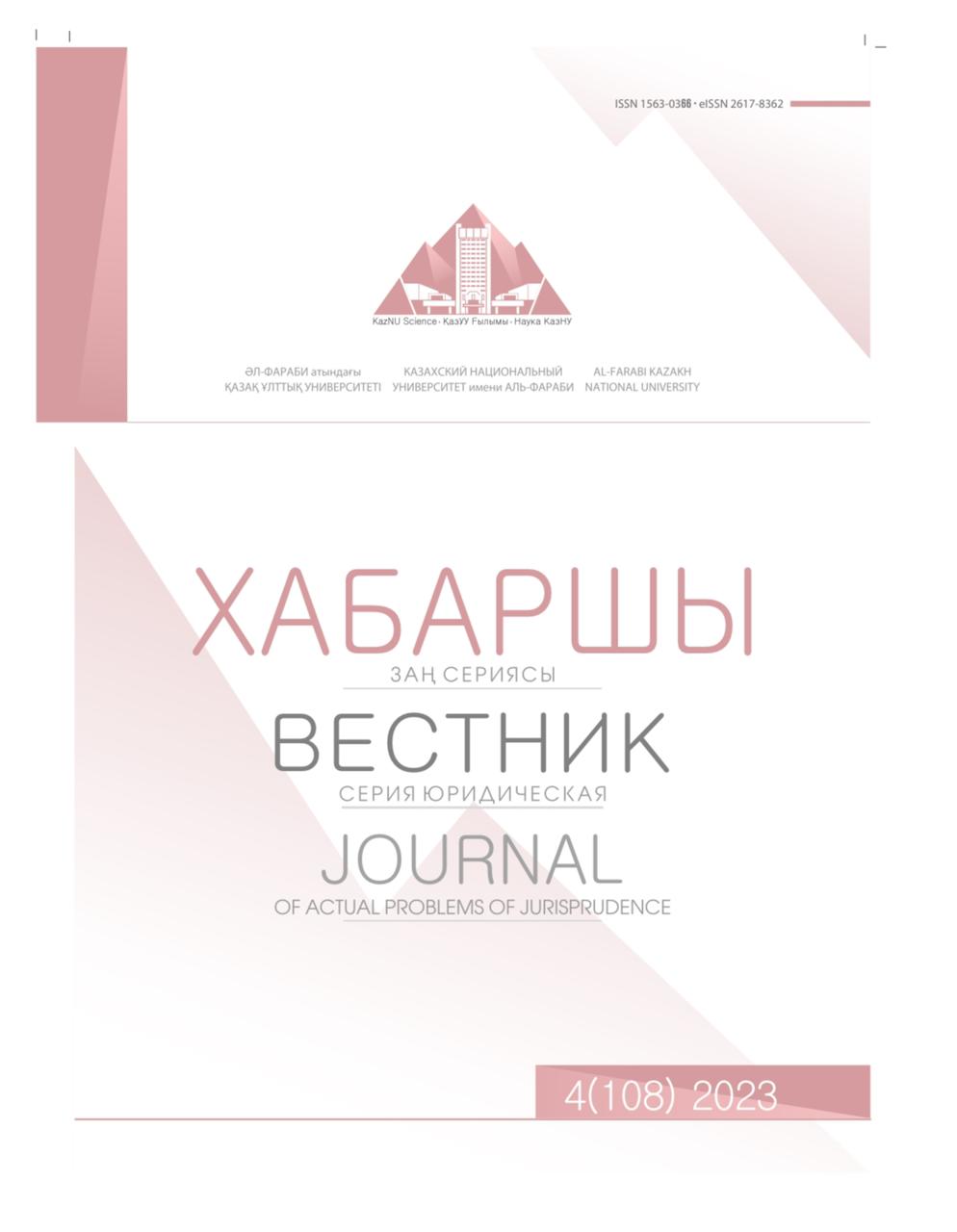INSTITUTE OF THE OMBUDSMAN (COMMISIONER FOR HUMAN RIGHTS) AS A MECHANISM OF PROTECTION OF HUMAN RIGHTS IN THE REPUBLIC KAZAKHSTAN AND TURKEY
DOI:
https://doi.org/10.26577/JAPJ.2023.v108.i4.014Abstract
Since the recognition of the Republic of Kazakhstan as an independent state in the international arena, much work has been done to protect and guarantee human and civil rights and freedoms. The first state to recognize Kazakhstan’s independence is the Republic of Turkey. In the legal system of the two brotherly countries, the status of the ombudsman institution (commissioner for human rights) is enshrined in the Constitution. However, it is known that the process of formation of the institute of ombudsman (commissioner for human rights) on both state was not an easy.
The purpose of study is to defines the stages of development of the institute of ombudsman (commissioner for human rights) in the state of Kazakhstan and Turkey and the role that this structure plays for the society. The legal definition of the concept of ombudsman is widely given, and the special duties of the ombudsman, which are intended to meet international standards, are indicated.
In addition, the statistic dates of the applications to ombudsman in the Republic of Kazakhstan and Turkey will be presented, taking into account the legal status and competence of the ombudsman at the present time. In general, the factors of coming to the institution of the ombudsman of the two states and the role of this institution in the protection of the rights and freedoms of people and citizens and the importance of the institution of the ombudsman in the formation of a democratic state are determined.
Key words: ombudsman institution, ombudsman, protection human and civil rights and freedoms, legal status, competence.













